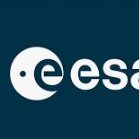Members Can Post Anonymously On This Site
Visitors with disabilities at ESA Open Day
-
Similar Topics
-
By European Space Agency
Video: 00:06:15 English
From 7 to 11 April, ESA's Centre for Earth Observation in Frascati, ESRIN, hosted the 2025 edition of ESA School Days, welcoming almost 1400 young students.
The event kicked off with primary school students (4th and 5th grades) visiting during the first three days, followed by secondary school students on the final two days.
Throughout the week, 35 schools from across Italy engaged in presentations and laboratories, delving into the diverse space activities conducted at ESA’s establishment.
This initiative, which included contributions from ESERO Italia and the Italian Space Agency (ASI), aims to inspire and engage the next generation of STEM students by sharing knowledge about space and the European Space Agency.
Italian
Dal 7 all'11 aprile, ESRIN, il Centro per l'Osservazione della Terra dell'ESA a Frascati, ha ospitato l'edizione 2025 degli ESA School Days, accogliendo quasi1 400 giovani studenti. L'evento ha preso il via con la visita degli studenti delle scuole primarie (classi quarte e quinte) durante i primi tre giorni, seguiti dagli studenti delle scuole secondarie nei due giorni finali.
Per tutta la settimana, 35 scuole da tutta Italia si sono cimentate in presentazioni e laboratori, approfondendo la loro conoscenza delle diverse attività spaziali condotte presso lo stabilimento dell'ESA.
L'iniziativa, che ha visto il contributo di ESERO Italia e dell'Agenzia Spaziale Italiana (ASI), mira a ispirare e coinvolgere la prossima generazione di studenti STEM condividendo le conoscenze sullo spazio e sull'Agenzia Spaziale Europea.
View the full article
-
By European Space Agency
Registrations are now open for the European Space Agency’s Living Planet Symposium (LPS) – one of the largest Earth observation conferences in the world. The event will take place on 23–27 June 2025 in Vienna, Austria.
View the full article
-
By European Space Agency
Video: 00:09:17 Meet Aleš Svoboda— A skilled pilot with over 1500 flight hours, Aleš holds a PhD in aircraft and rocket technology and has commanded Quick Reaction Alerts. From flying high to training underwater, he’s always ready to take on new challenges—now including astronaut reserve training with ESA.
In this miniseries, we take you on a journey through the ESA Astronaut Reserve, diving into the first part of their Astronaut Reserve Training (ART) at the European Astronaut Centre (EAC) near Cologne, Germany. Our “ARTists” are immersing themselves in everything from ESA and the International Space Station programme to the European space industry and institutions. They’re gaining hands-on experience in technical skills like spacecraft systems and robotics, alongside human behaviour, scientific lessons, scuba diving, and survival training.
ESA’s Astronaut Reserve Training programme is all about building Europe’s next generation of space explorers—preparing them for the opportunities of future missions in Earth orbit and beyond.
This interview was recorded in November 2024.
You can listen to this episode on all major podcast platforms.
Keep exploring with ESA Explores!
View the full article
-
By European Space Agency
Image: New ESA invention tested in a chamber of no echoes View the full article
-
By European Space Agency
Europe’s space industry gathered at the European Space Agency (ESA) in the Netherlands on 3–4 April to gain insights into the future of space in Europe.
View the full article
-
-
Check out these Videos


Recommended Posts
Join the conversation
You can post now and register later. If you have an account, sign in now to post with your account.
Note: Your post will require moderator approval before it will be visible.